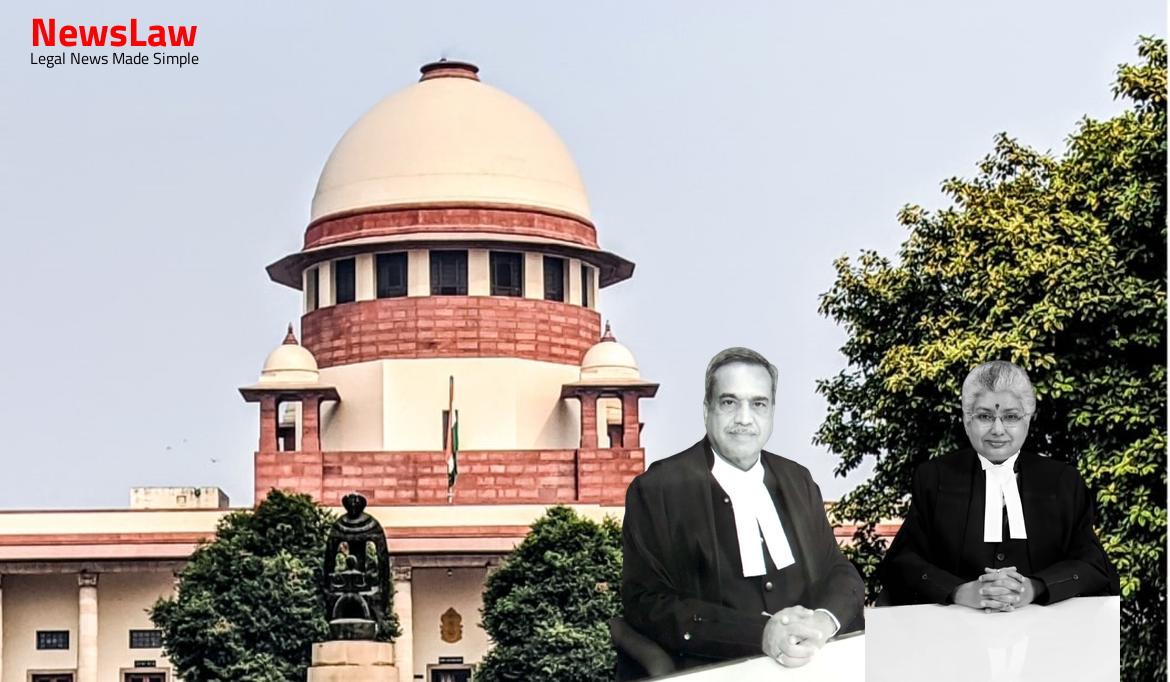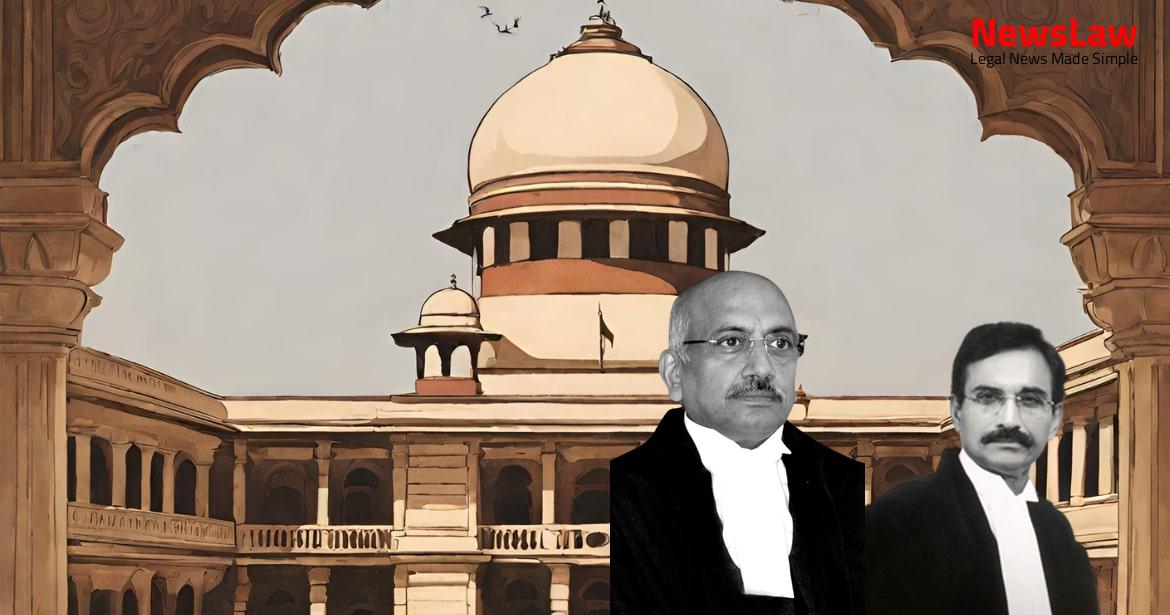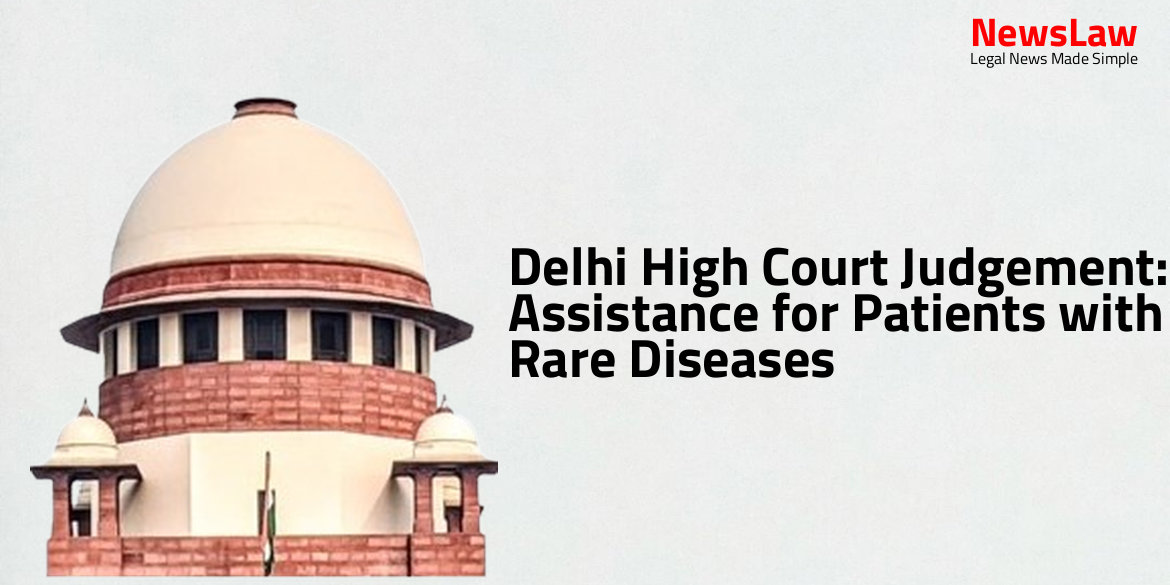Explore the detailed legal analysis undertaken by the court in a recent land acquisition case. The judgment delves into the complexities surrounding the deemed lapse of acquisition proceedings, drawing on interpretations of compensation, possession, and key legal provisions. Follow along to understand the court’s meticulous examination of the case’s legal intricacies.
Facts
- DDA and Government of NCT of Delhi appealed against the judgment of the High Court.
- The High Court declared that the acquisition proceedings initiated under the Land Acquisition Act, 1894 have lapsed under the Act, 2013.
- The original writ petitioners claimed that as they have possession of the land in question and no compensation has been paid, the acquisition proceedings are deemed to have lapsed.
- The original writ petitioners relied on the case of Pune Municipal Corporation vs. Harakchand Misirimal Solanki and Ors, (2014) 3 SCC 183.
- The appellants opposed the petition.
Also Read: Ruling on Circumstantial Evidence in Murder Case
Arguments
- The original writ petitioners claim possession of the land in question, despite allegations of fraud and pending investigations.
- The High Court had granted a stay order in 2011, preventing any coercive action regarding the land, which the appellants argue should exclude that period from the calculation.
- The DDA and Government of NCT of Delhi argue that the original writ petitioners have no locus standi due to the fraud allegations and pending investigations.
- The authorities claim to have taken possession of the land in 1986 with proper procedures followed, including issuing a punchnama.
- Compensation was tendered to the recorded owner but was not accepted, according to the DDA.
- The appellants assert that since possession was taken in 1986 and compensation was deposited, the acquisition proceedings cannot be deemed to have lapsed under Section 24(2) of the Act.
- The High Court relied on the Pune Municipal Corporation case, but the original writ petitioners argue that they continue to be in physical possession and no compensation was paid to them.
- Original writ petitioners remain in possession without compensation being tendered or paid.
- High Court did not err in declaring the acquisition proceedings as having lapsed under section 24(2) of the Act, 2013.
- Authorities failed to prove that any compensation was paid, tendered, or deposited with the treasury.
Also Read: Challenging Legal Presumptions in Negotiable Instrument Cases
Analysis
- The deemed lapse of land acquisition proceedings under Section 24(2) of the 2013 Act occurs when authorities fail to take possession or pay compensation for five years or more prior to the commencement of the Act.
- The obligation to pay compensation is fulfilled by tendering the amount under Section 31(1) of the 1894 Act.
- Non-deposit of compensation in court does not result in the lapse of land acquisition proceedings.
- The High Court’s direction to consider the application under section 48 of the Act, 1894 on merits presumes the original writ petitioners to remain in possession.
- If possession has been taken but compensation has not been paid, or if compensation has been paid but possession has not been taken, there is no lapse.
- In case of non-deposit with respect to the majority of landholdings for five years or more, compensation under the 2013 Act must be paid to landowners as on the date of notification for land acquisition under Section 4 of the 1894 Act.
- Interest under Section 34 of the Land Acquisition Act, 1894 can be granted in case the obligation under Section 31 is not fulfilled.
- The word ‘or’ in Section 24(2) should be read as ‘nor’ or ‘and’ between possession and compensation.
- Compensation must be determined under the provisions of the 2013 Act, and the decision in the Indore Development Authority case does not prevail in the current judgment.
- The decision in Pune Municipal Corporation v. Harakchand Misirimal Solanki (2014) is overruled along with all other decisions that followed it.
- The decision in Indore Development Authority v. Shailendra (2018) addressed the aspect of the proviso to Section 24(2) and the interpretation of ‘or’ as ‘nor’ or ‘and’.
- The decision in Sree Balaji Nagar Residential Assn. v. State of T.N. (2015) is considered to not be good law and is overruled, along with other decisions that relied on it.
- Land acquisition proceedings not deemed to have lapsed under sub-section (2) of section 24 of the Act, 2013.
- Referring to the case of Indore Development Authority, it is established that the proceedings are not deemed to have lapsed.
- High Court’s declaration that the proceedings lapsed is unsustainable due to a stay order in place since 09.11.2011.
Also Read: Legal Analysis Critique in High Court’s Quashing Order
Decision
- The judgment and order passed by the High Court in Writ Petition (C) No.1043/2015 declaring the land acquisition proceedings as lapsed under section 24 of the Act, 2013, are quashed and set aside.
- The present appeals are allowed with no order as to costs.
- The present appeals are allowed based on the reasons stated in the judgment.
Case Title: DELHI DEVELOPMENT AUTHORITY Vs. RAJAN SOOD (2022 INSC 362)
Case Number: C.A. No.-001927-001927 / 2022



